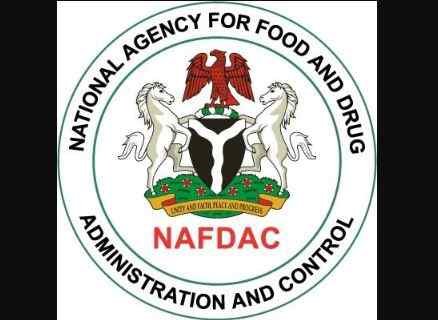This is a comprehensive guide to the full meaning of NAFDAC. In this guide, you’ll learn about its function, how it ensures food safety and the penalties for violating the agency regulations.
READ ALSO: When Was NAFDAC Established; Who Established NAFDAC?
What Is NAFDAC In Nigeria?
The full meaning of NAFDAC is the National Agency for Food and Drug Administration and Control. It is a Nigerian federal agency responsible for ensuring that food, drugs, cosmetics, medical devices, packaged water, chemicals, and detergents are safe for use.
This agency was officially formed in October 1992, under the Federal Ministry of Health, following the passing of Decree No. 15 of 1993, which was later amended by Decree No. 19 of 1999.
NAFDAC was created because Nigeria faced serious problems with fake and unsafe products that harmed public health.
The agency’s main goal is to regulate the production, import, export, advertisement, and sale of these products to make sure they meet the required standards for safety and quality.
By doing this, NAFDAC helps to protect the health of the Nigerian people and boost their confidence in the products available in the market.
What Are The Functions Of NAFDAC In Nigeria?
Here are some of NAFDAC’s core functions:
Regulation And Control
NAFDAC oversees everything about food, drugs, cosmetics, medical devices, and other regulated products. It monitors how they are made, imported, exported, sold, and even advertised. The agency makes sure that these products meet required safety standards.
Standard Setting And Compliance
The agency sets quality standards for products and their ingredients. It checks if companies are following these standards by conducting tests and inspections.
This helps to confirm that the products produced or sold in Nigeria are safe and of good quality. NAFDAC also looks into the production sites to make sure they have good quality assurance systems in place.
Registration And Certification
Before any food, drug, medical device, or other regulated product can be made or sold in Nigeria, it must be registered with NAFDAC.
The agency guides manufacturers through the registration process and issues certificates for products that meet its standards.
Inspection And Monitoring
NAFDAC inspects products that are brought into the country and checks production sites. It also monitors advertisements to make sure they are truthful and not misleading. The agency can inspect any place where these products are made or sold to comply with regulations.
Research And Collaboration
NAFDAC also does research to improve its work. The agency studies how products are stored, distributed, and used. Also, they collaborate with other organizations, both inside and outside Nigeria to better control regulated products.
READ ALSO: How To Carry Out NAFDAC Registration? (2024 Step-By-Step Guide)
How Does NAFDAC Ensure Food Safety In Nigeria?
To ensure food hygiene, NAFDAC created the NAFDAC Guidelines for Food Hygienic Practices (NGFHP). These guidelines give clear steps on how food handlers and manufacturers should maintain cleanliness throughout the food supply chain.
NAFDAC also conducts regular inspections of food factories, warehouses, and markets to make sure that all food products meet safety requirements before they reach consumers.
Imported food is carefully checked as well to prevent dangerous items from entering the country. NAFDAC’s Food Safety and Applied Nutrition (FSAN) Directorate works specifically on improving food safety oversight.
It assesses food production practices and monitors compliance with regulations. Additionally, NAFDAC educates the public through workshops and training on safe food handling.
The agency also collaborates with other organizations, including non-governmental organizations and government bodies, to promote food safety.
What Are The Penalties For Violating NAFDAC Regulations?
Violating NAFDAC (National Agency for Food and Drug Administration and Control) regulations in Nigeria can lead to serious consequences.
However, the penalties depend on the type and severity of the violation, all guided by the NAFDAC Act, which aims to protect public health.
One of the penalties is the confiscation of products that do not meet NAFDAC’s standards. For example, if a product has unapproved ingredients or misleading packaging, it can be seized when it arrives in Nigeria.
This rule is strict for products imported after specific dates. Manufacturers and importers who break NAFDAC rules may face more than just losing their products.
They could also face sanctions, meaning their products may be banned from the market, and their business could be blacklisted from future operations.
This discourages bad practices and ensures that only safe products are available. NAFDAC also has the power to take criminal action.
Companies or individuals involved in distributing fake or unsafe products can be prosecuted, which could result in heavy fines or jail time.

